Hasinaraj's death, democracy still uncertain

We use Google Cloud Translation Services. Google requires we provide the following disclaimer relating to use of this service:
This service may contain translations powered by Google. Google disclaims all warranties related to the translations, expressed or implied, including any warranties of accuracy, reliability, and any implied warranties of merchantability, fitness for a particular purpose, and noninfringement.

Highlights
- Amidst the political crisis, the democratic journey of Bangladesh is in confusion as the army took the lead instead of the president, parliament or other political and constitutional bodies.



After the anti-government movement in Bangladesh reached its height, Prime Minister Sheikh Hasina resigned from the post and left the country. After Hasina left the country, the army took over the reins of the country, although the army chief, General Walker-Uz-Zaman, announced that an interim government would be formed with the participation of all parties.

Bangladesh's democratic journey is uncertain as the military took the lead instead of the president, parliament or other political and constitutional bodies amid the political crisis.
Army Chief Zaman says that since the Prime Minister has resigned and left the country, citizens should now trust the army. We have decided to form an interim government. We will discuss this matter with the President. Trust us,' he said in a press conference, 'We request to end the protest program and return home.'
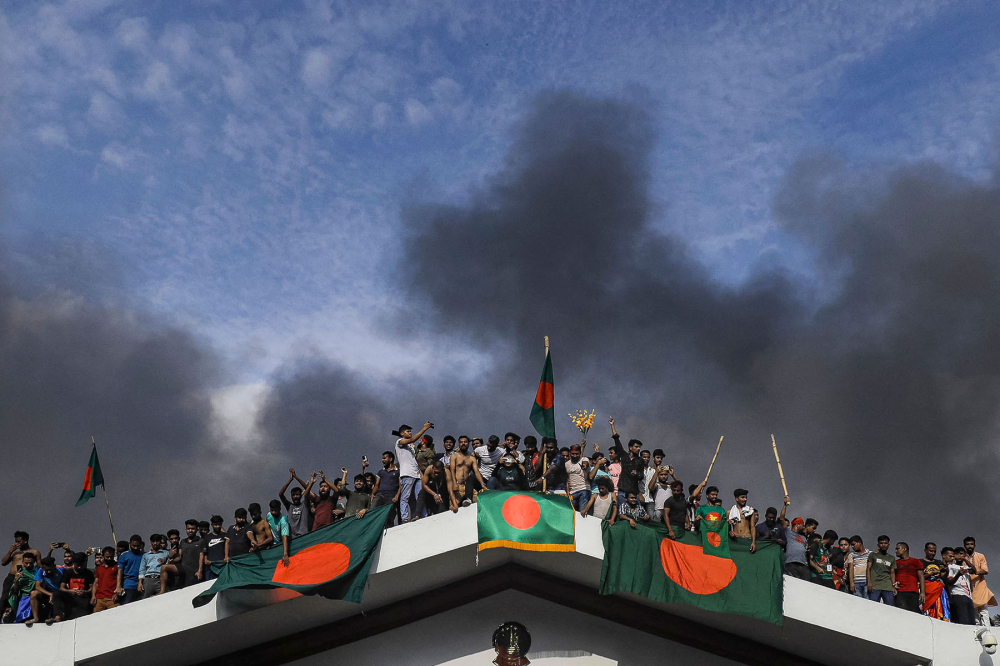 With the latest incident, the army of Bangladesh has returned to the center of power after almost two decades. The military seized power in Bangladesh in 2006 due to the 'Begum War' between Sheikh Hasina of the Awami League and Begum Khaleda Zia of the Bangladesh Nationalist Party (BNP). However, Hasina remained in power after the elections in 2008, while Khaleda Zia's party was marginalized by repression.
With the latest incident, the army of Bangladesh has returned to the center of power after almost two decades. The military seized power in Bangladesh in 2006 due to the 'Begum War' between Sheikh Hasina of the Awami League and Begum Khaleda Zia of the Bangladesh Nationalist Party (BNP). However, Hasina remained in power after the elections in 2008, while Khaleda Zia's party was marginalized by repression.
The latest movement started against the reservation system. Members of the 'Mukti Bahini', which separated Bangladesh from Pakistan in 1971, are honored as freedom fighters. 30% reservation in government jobs was provided for children of freedom fighters. The freedom fighters and their children have already got the facility of reservation, but now their grandchildren also have to be allocated 30 percent of the jobs, the dissatisfaction among the young students increased.
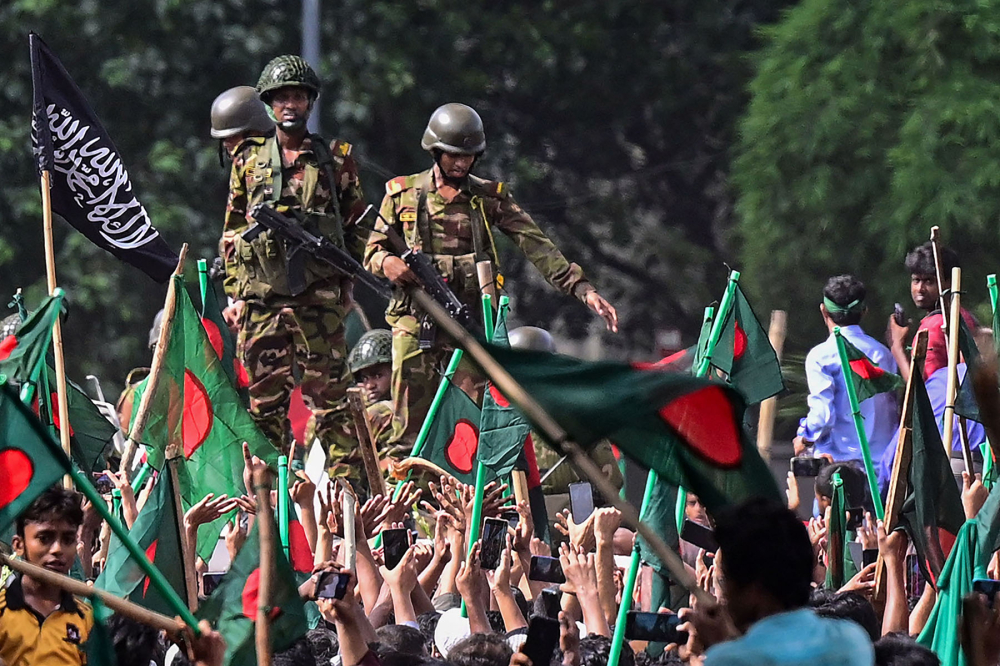 After the protests in 2018, the Hasina government reduced the reservation from 30 percent to 6 percent. However, after hearing the petition filed by the children of the freedom fighters, the high court restored the reservation two months ago on June 5, and the student movement started. As the movement intensified, the Supreme Court overturned the High Court's decision.
After the protests in 2018, the Hasina government reduced the reservation from 30 percent to 6 percent. However, after hearing the petition filed by the children of the freedom fighters, the high court restored the reservation two months ago on June 5, and the student movement started. As the movement intensified, the Supreme Court overturned the High Court's decision.
The movement was expected to stop after the Supreme Court order. However, Hasina's comments towards the protesting students became fuel. In a press conference a few weeks ago, Hasina accused the anti-independence forces of denying the reservation to the children of freedom lovers. If the children of freedom fighters do not get quota, will the children of Razakar get it? This is my question," she said. Bengalis who fought on the side of Pakistani forces in the freedom movement are considered Razakars (traitors).
After the Prime Minister termed the protesting students as 'traitors' and 'terrorists', the movement shifted towards Hasina's throne. After this statement, the students staged a protest demanding the resignation of the Prime Minister. In addition to that, the students again took to the streets asking for justice for more than two hundred classmates who were killed during the protest. About 94 people were killed on Sunday alone when the Hasina government suppressed the students, but when the movement became more intense, the 16-year long rule of Hasina, who was known as a powerful woman in Asia, not only ended, but she had to leave the country urgently.
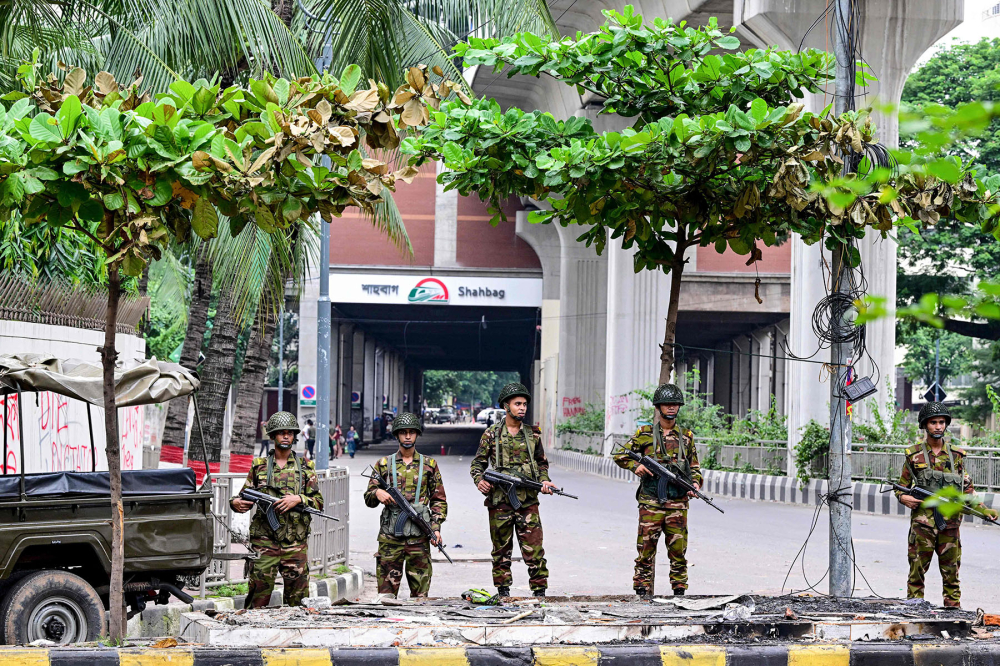 Before leaving the country, Hasina expressed her desire to address the countrymen. However, the media reported that the army created an environment for them to escape without even giving them an opportunity. According to the BBC, the plane carrying Hasina and her sister Sheikh Rehana reached Tripura, India on Monday afternoon and landed at Hindon Airbase in Ghaziabad near Delhi in the evening. The media of India and Bangladesh said that he is likely to go from New Delhi to London, the capital of Britain.
Before leaving the country, Hasina expressed her desire to address the countrymen. However, the media reported that the army created an environment for them to escape without even giving them an opportunity. According to the BBC, the plane carrying Hasina and her sister Sheikh Rehana reached Tripura, India on Monday afternoon and landed at Hindon Airbase in Ghaziabad near Delhi in the evening. The media of India and Bangladesh said that he is likely to go from New Delhi to London, the capital of Britain.
Security personnel arrested about 10,000 students and supporters of the opposition party to control the subsequent demonstrations. During the disobedience movement that resumed on Sunday, the students called for the shutdown of public transport and factories. Prime Minister Hasina's party, Awami League, also organized rallies across the country on Sunday to protest against the movement. 94 people were killed in the clashes.
The government announced an indefinite curfew from Sunday evening to control the situation. In addition to all the major cities of the country, people were banned from going out in municipalities, industrial areas and the capital region. But defying the order, at least 400,000 protesters took to the streets on Monday. Tens of thousands of protesters from villages reached the capital Dhaka on Monday.
During the disobedience movement, the protestors called on the government not to pay taxes and fees including electricity and water. As the demonstration moved towards Shah Bagh in central Dhaka, the police fired 'sound grenades' and tear gas. At least 66 people were killed in violent incidents in Dhaka on Monday. Protesters set fire to the Bangabandhu Museum in Dhaka and also damaged the salik of freedom fighter Sheikh Mujibar Rahman. The protesters have entered the Prime Minister's official residence Gana Bhavan. In the 'footage' circulated in various media, the protesters are seen carrying chairs and sofas from the Prime Minister's residence.
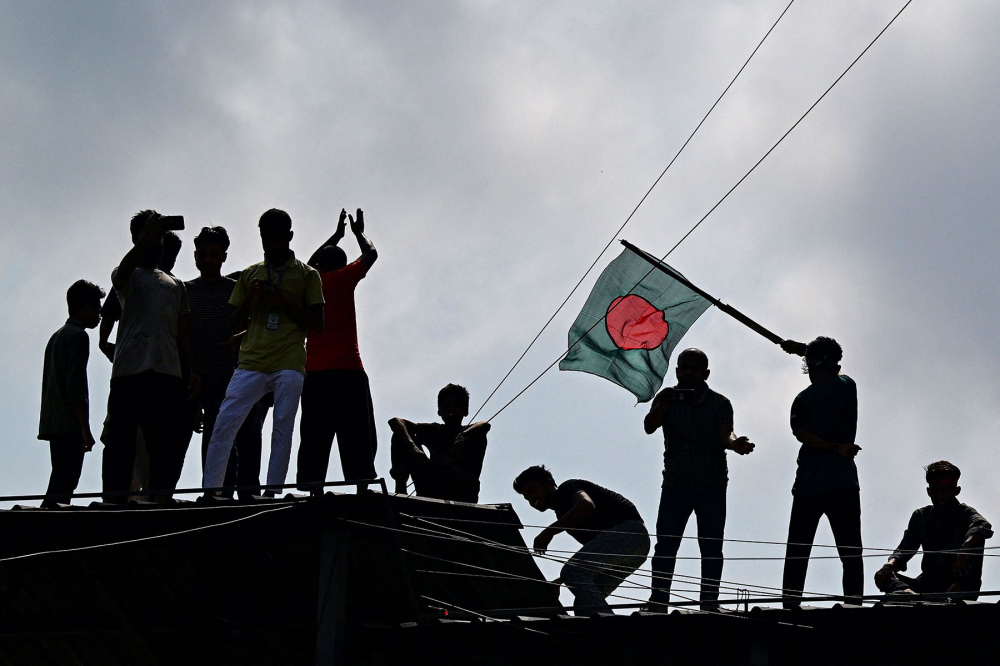 Internet services were shut down across the country on Monday in an effort to prevent coordination between protesters. News sites like 'The Dhaka Tribune', 'Bangla Tribune', 'Daily Star Bangla' were also closed. But blocked internet and news sites have been up and running since Monday afternoon. In Bangladesh, which has a population of around 170 million, most people use the Internet.
Internet services were shut down across the country on Monday in an effort to prevent coordination between protesters. News sites like 'The Dhaka Tribune', 'Bangla Tribune', 'Daily Star Bangla' were also closed. But blocked internet and news sites have been up and running since Monday afternoon. In Bangladesh, which has a population of around 170 million, most people use the Internet.
There is uncertainty about the future of Bangladesh after the latest developments. Army chief Zaman announced that he would form an all-party government and claimed that he had already spoken to the opposition political parties. He also expects a solution to emerge within a few days. This means that it remains to be decided who will lead the interim government. The international community and analysts have shown interest in the political, democratic and economic future of Bangladesh.
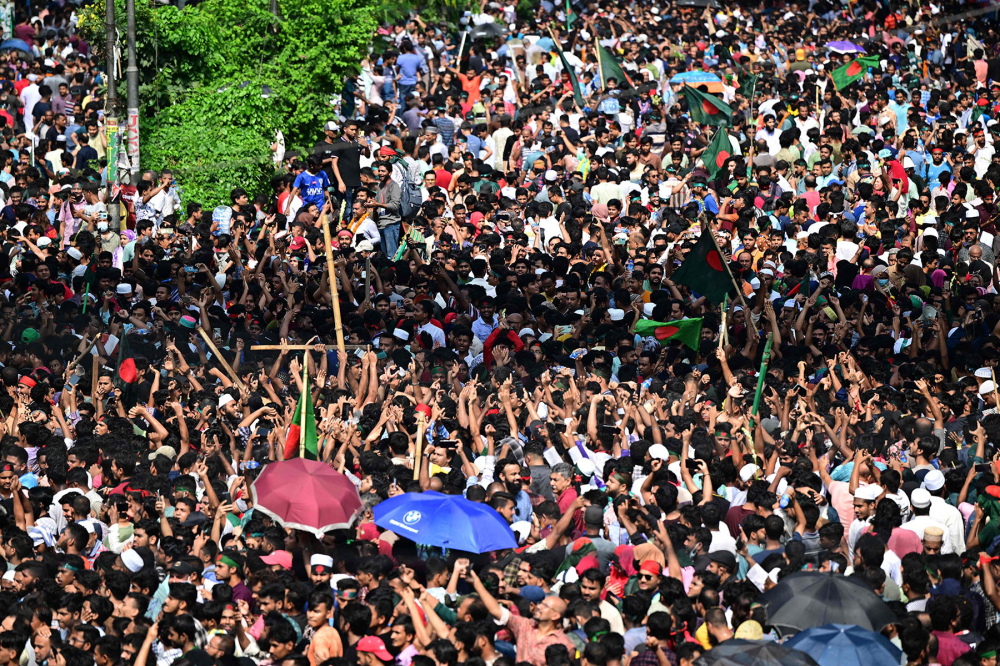 Vanshidhar Mishra, Nepal's former ambassador to Bangladesh, says that the latest incident happened because Hasina, who has been in power for a long time, has attacked democracy. This situation has come about because the opposition party went forward alone and showed a dictatorial attitude. Hasina's dictatorial steps overshadowed Bangladesh's stability and miraculous economic development," says Mishra. "The current situation in Bangladesh can be called a people's revolt. which the state is unable to understand the people's wishes.'
Vanshidhar Mishra, Nepal's former ambassador to Bangladesh, says that the latest incident happened because Hasina, who has been in power for a long time, has attacked democracy. This situation has come about because the opposition party went forward alone and showed a dictatorial attitude. Hasina's dictatorial steps overshadowed Bangladesh's stability and miraculous economic development," says Mishra. "The current situation in Bangladesh can be called a people's revolt. which the state is unable to understand the people's wishes.'
He says that the current situation has come about because of Hasina's mentality that people can be oppressed. This incident has happened in different backgrounds. Hasina's government has taken steps to close the mouth of Nobel laureate Mohammad Younis and put him in jail, so the situation can be understood. There was a need for a breakthrough, the student movement did that," Mishra said.
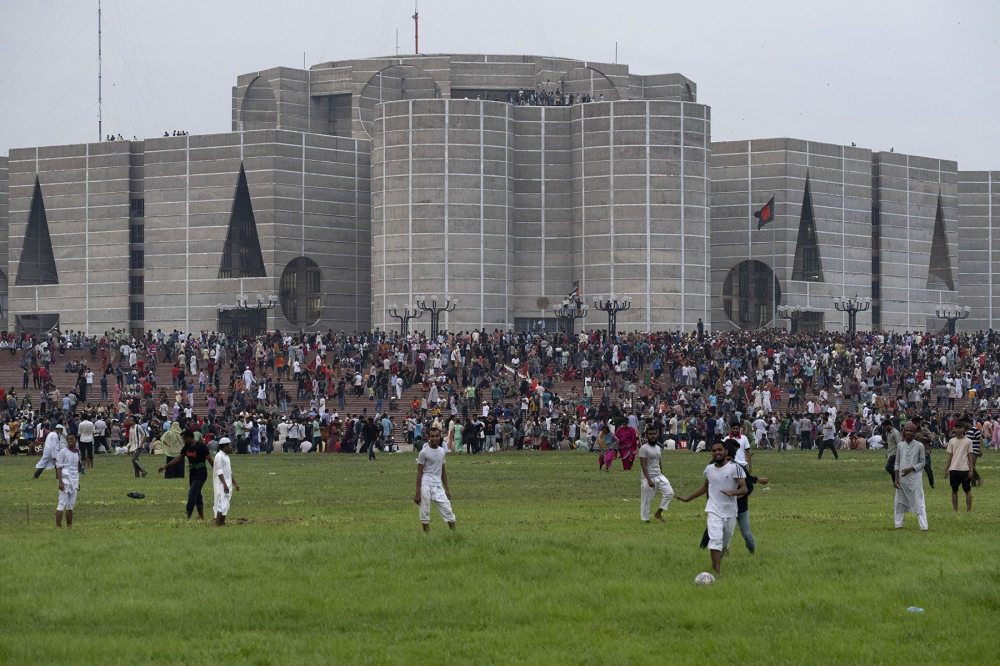 Similarly, former foreign secretary and former ambassador to Bangladesh Madhurman Acharya says that the growing situation in neighboring Bangladesh is a matter of concern. Acharya suggests that the leaders in power in Afghanistan, then Sri Lanka and now in Bangladesh have to flee in this way.
Similarly, former foreign secretary and former ambassador to Bangladesh Madhurman Acharya says that the growing situation in neighboring Bangladesh is a matter of concern. Acharya suggests that the leaders in power in Afghanistan, then Sri Lanka and now in Bangladesh have to flee in this way.
-
 प्रकाशित : श्रावण २२, २०८१ ०५:१२
प्रकाशित : श्रावण २२, २०८१ ०५:१२

 ३०.१२°C काठमाडौं
३०.१२°C काठमाडौं













